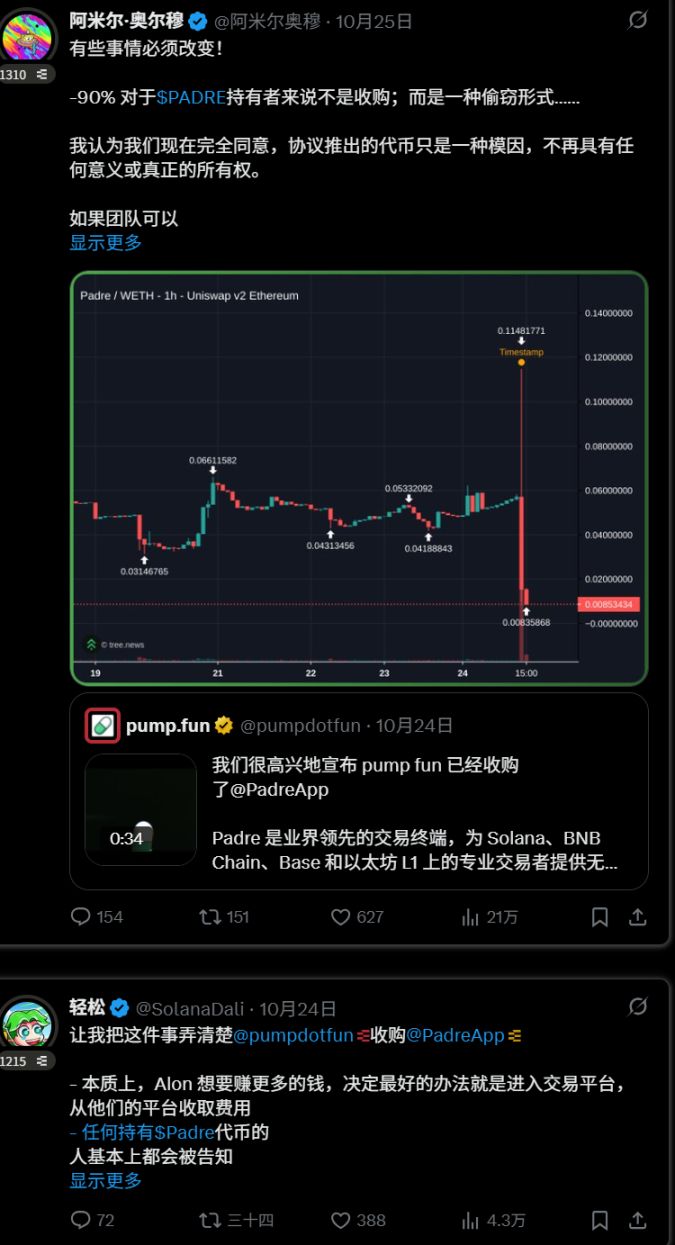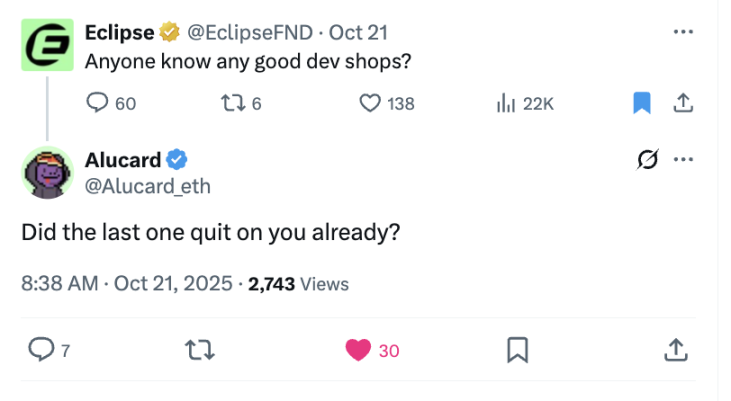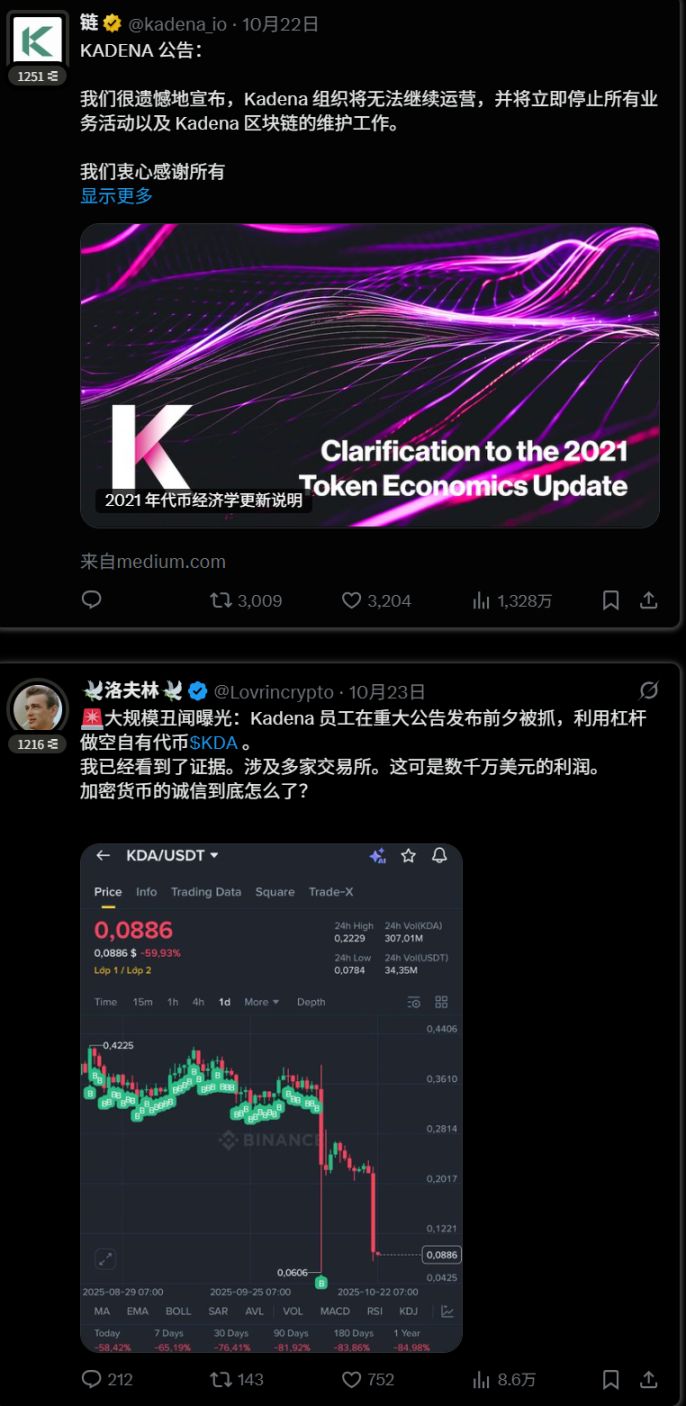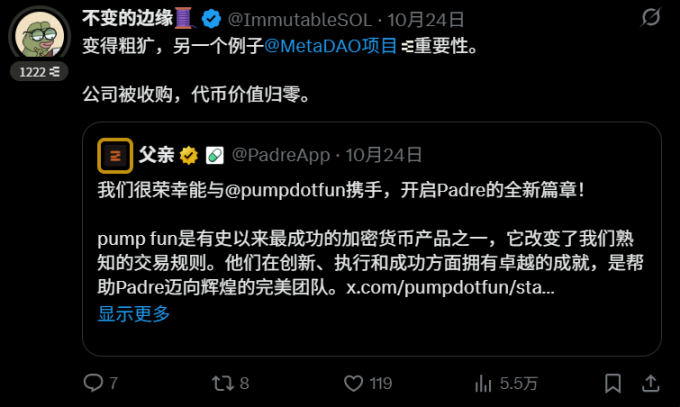When the Tide Goes Out: Who Is "Swimming Naked"? A Discussion on the Acquisition Fates of Clanker and Padre
Where does value accumulate? If value accrues to equity entities, why buy tokens? Are all tokens just meme coins?
Written by: mary in sf
Translated by: AididiaoJP, Foresight News
In the short term, the market is a voting machine, but in the long term, it is a weighing machine — Benjamin Graham.
We are now in the consolidation phase of the industry cycle, and everyone can see who is swimming naked.
Although liquidity has been declining for some time, on October 10, liquidity dramatically and completely disappeared. "Death of a Salesman" is an extremely apt metaphor for this moment in crypto history. The play focuses on the corrosive illusion of the American dream, the fragility of family bonds, and the psychological cost of social expectations; all of these mirror the illusion of the superstructure, the real-world fragility of crypto companies, and the psychological toll on market participants burned by one token after another.
Now that we have awakened from the fantasy of "what crypto could be" that 2021 told us, we speculators are picking up the pieces, rather than facing what crypto actually is in reality.
Last year, I read "Built to Last," a book about what distinguishes generational companies from ordinary ones. The author discusses the internet bubble in detail, and one key point is that in every innovation cycle, the public speculates on the "new mysterious technology," but what truly distinguishes the excellent from the great is the people behind each company. Tokens that do not clearly codify the rights of actual token holders in the legal system are somewhat worthless, but the past few weeks have shown which tokens have teams that care about the long-term survival of the token and which are short-term, never having had any real plan.
For all these rhetorical questions that have always been treated more as memes, now is a moment of reckoning:
- Where does value accumulate?
- If value accrues to equity entities, why buy tokens?
- So are all tokens just meme coins?
Here is the mental framework I believe will persist for tokens in the future:
- Bitcoin
- Revenue-backed: such as Hyperliquid, etc.
- Social capital, attention tokens
This article will be more observational, rather than analytical as my previous ones, because I find this interesting but do not have the time to dig deeper like zachxbt.
Acquisitions
This week gave us two examples of token acquisitions: one token went up (Clanker), the other went down (Padre).
Clanker
Yesterday, @farcaster_xyz announced the acquisition of Clanker. Clanker is a token launch platform on Base, built by an excellent team, and its corresponding token was launched about a year ago:
- Protocol fees will be used to buy and hold $CLANKER
- The Clanker team burned tokens collected as protocol fees in product versions v0 - v3.1.
- The team permanently locked about 7% of the total supply of $CLANKER in a single-sided liquidity pool to provide extra liquidity (this reduces circulating supply).

The token subsequently rose, as it became clear that the Clanker team treated its token as equity in their deal with Farcaster.
Padre
The market rarely gives you the chance to experiment without confounding variables. Both Clanker and Padre are, on the surface, revenue-generating products. Let's see what happens to a token when a team fails to act.
The team promised buybacks and revenue sharing, but failed to deliver? Instead, the team kept all the profits, occasionally promising to restore revenue sharing and buybacks, while their token continued to trade. Now Padre has been acquired, token holders got nothing, and the token was revealed to be worthless.

Ironfish
If anyone has time to explain the details of this acquisition to me, I’d love to know. As I understand it, the token is still trading because the network is still maintained by the Iron Fish Foundation, and the core team was acqui-hired by Base. It feels a bit odd to see the former founder tweeting about price action. Does this mean Base acquired the Labs entity? Did they purchase any amount of tokens?
Collapse
Eclipse and Kadena
These companies were exposed for scandals just as other blockchains neared their TGE and mainnet launches, providing a stark reminder: not all blockchains are safe structures. In fact, they remind us that what blockchains trade is trust in their potential, and the strength and conviction of the team is a key indicator.
I won’t emphasize Eclipse’s token price or any further tweets, but I do find it a bit funny. Eclipse was doomed from the start because its intention was never to operate a blockchain with a long-term vision; it was always about extracting liquidity.

There are many different circles in the crypto world. In our small crypto Twitter circle, everyone knows Kadena was never a normally functioning blockchain. Several employees from different companies have told me their companies lack viable products and are just in a state of suspended existence until the music stops.

This is quite a bad and frustrating period for the crypto space. We need to provide rights protection for token holders and more productive small-cap assets.

I find that if you view crypto simply as an accelerated economic experiment, it becomes a little less depressing, but the byproduct of such experiments is that believers who trusted the wrong teams lost a lot of money.
What does it say when decentralized technology is so dependent on trustworthy teams? Only up, never down.